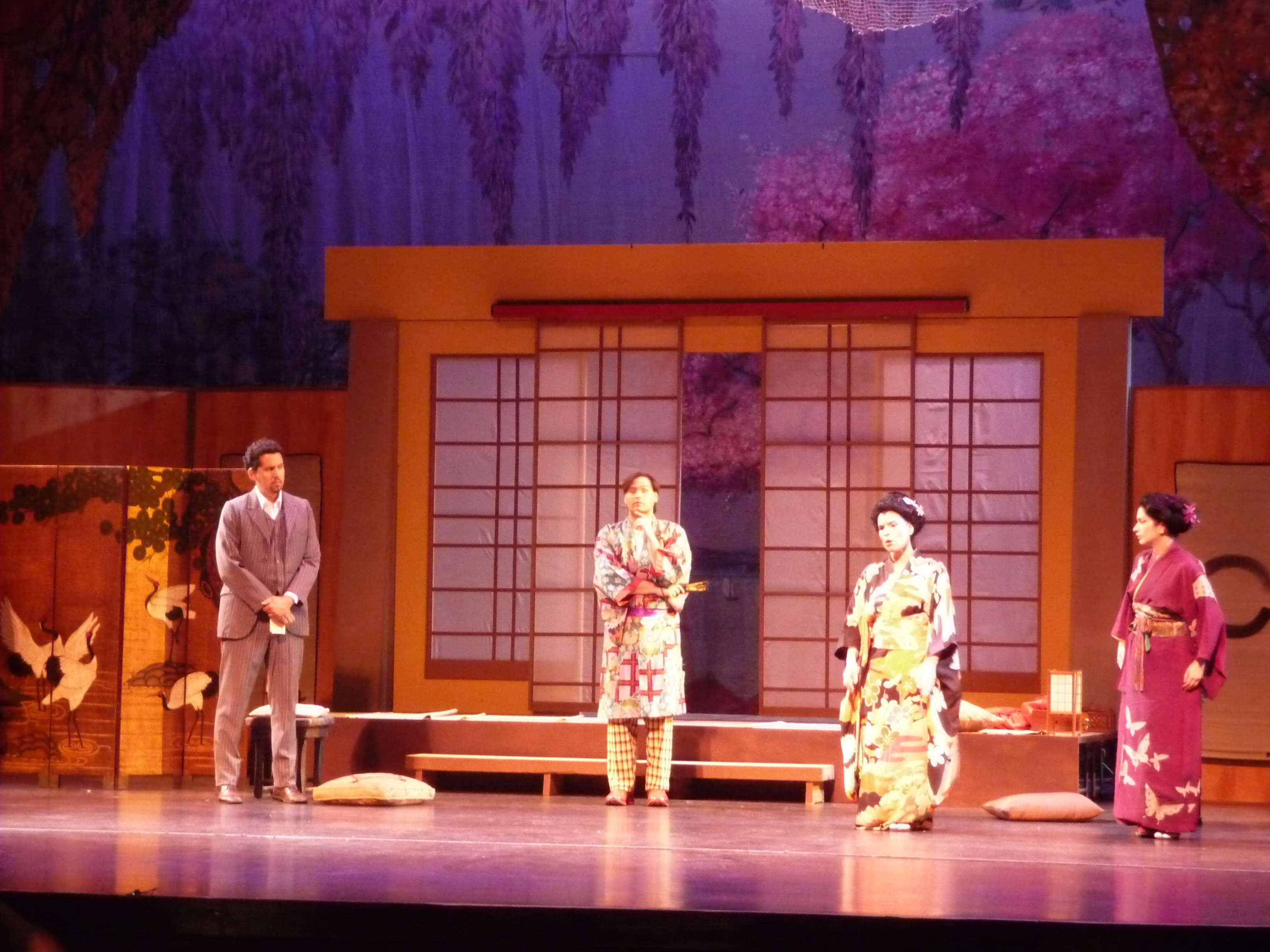|
Back
A Giant Step Forward Miami
Gusman Center
06/23/2012 - & June 24*, 2012
Giacomo Puccini: Madama Butterfly
Miami Lyric Opera Orchestra and Chorus, Pablo Hernandez (chorus master), Jeff Eckstein (conductor)
Raffaele Cardone (director), Miami Lyric Opera (scenic design), Miami Lyric Opera (costume design), Christina Villaverde (lighting design)

(© Erica Williams)
“Madama Butterfly, again? Big deal!” You might have heard this from people whom you told what you were doing on Saturday night or Sunday afternoon. Big deal? They are correct; it is a very big deal and an even bigger deal if it is done properly which isn’t always the case. People often think it is easy to do the works in the standard repertory, but because they are given so often, we have a lot to compare to. As is so often the case with Miami Lyric Opera, this company proves that bigger does not have anything to do with being better, though this time the production looks much more polished than it did when the company premiered it in 2008.
The approach here is not novel. The production aims only for truth: Butterfly's suicide happens when the score indicates it, Trouble is a human being, Pinkerton is not overly vulgar in the first act and is most certainly a part of the tragedy in the last. Though such outlandish respect for the creators would, for some, seem to be unimaginative, most of us find it relieving and nowadays quite refreshing.
A memorable opera event is first about the performing. And here Miami Lyric Opera had a lot to be proud of. Daniella Carvalho played the title character in the previous production and it is startling to see how she has grown. The voice was always solid, sometimes a little stressed in the top; it is, however, her interpretation that has taken firmer shape. Being more confident, her acting is subtler making the progression from smart yet timid bride to controller of her unfortunate destiny very engrossing and truly tragic. Raymundo Antomarchi makes an impressive Pinkerton. The voice is more dependable in the middle and lower registers and sometimes gets lost in the orchestration, but his is a memorable performance. A very tall man on the heavyset side, he is remarkably agile and easily makes a distinguished-looking lieutenant. His remorse in the last act is completely moving. The Sharpless of Graham Fandrei offered the evening's exceptional performance. The voice is always perfectly focused and never falls off pitch. A particularly handsome and tall man, he makes an exceptionally kind advisor who doesn't hesitate in harshly scolding the lieutenant for his arrogance. As it should, his second dialog with Carvalho is the performance's high point. The intensity of Lisette Gimenez's Suzuki cannot hide the truth of what is going to come for Madama Butterfly newcomers. Her face reflects Butterfly's pain. Though she tries to warn her mistress, she knows her words will not be heard and willingly accepts the punishment that comes with it. Giminez's contribution is especially evident in the glorious trio. Goro is often unfairly evaluated as a comprimario role. In the hands of a performer as determined as Eduardo Valdes this could not even be considered. He chose to play the marriage broker with an annoyingly obvious effeminacy making him deliciously repulsive.
The smaller roles were not always as well-matched though the powerful bass of Diego Baner's Bonze, Rebekah Diaz's kind and honestly sympathetic Kate Pinkerton and the brightness of Ismael Gonzalez's Commissioner significantly added to the performance's success.
Miami Lyric Opera orchestra under Jeff Eckstein has improved tremendously. The difficult intermezzo presented no outstanding problems and the humming chorus was taken at an unusually nimble and effective pace. It seemed quite amazing that the lushness of Puccini's orchestrations could sound so complete with only 25 orchestra members. Miami Lyric Opera's chorus under the direction of Pablo Hernandez continues to demonstrate the confidence necessary for an opera like Butterfly where its contribution is so vital.
Though some of the ideas in staging are undoubtedly borrowed from other productions, it is especially interesting to contrast the start of act two with Suzuki saying her traditional prayers as we see Cio-Cio San on the opposite side of the stage practicing her rosary. To have Suzuki fall off to sleep during the vigil is always much more dramatic than to have her remain as steadfast as her mistress. Pinkerton's caressing of Cio-Cio San's lifeless body made for a much more tender ending than to what we have become accustomed. And how much subtler and even more shocking it is to have Trouble visually unaware of his mother's death. Director Raffaele Cardone understands that the audience needs a break and wisely chose to offer a lengthy pause between the two sections of the second act instead of going directly from the humming chorus into the intermezzo which has become standard.
With this fine achievement Miami Lyric Opera now confidently presents one of the repertory's most popular works. The production will be offered again at the Colony Theatre in Miami Beach on Saturday July 7 at 8 p.m. and on Sunday July 8 at 4 p.m. There will be several cast changes.
Jeff Haller
|